A Field in England (Ben Wheatley)
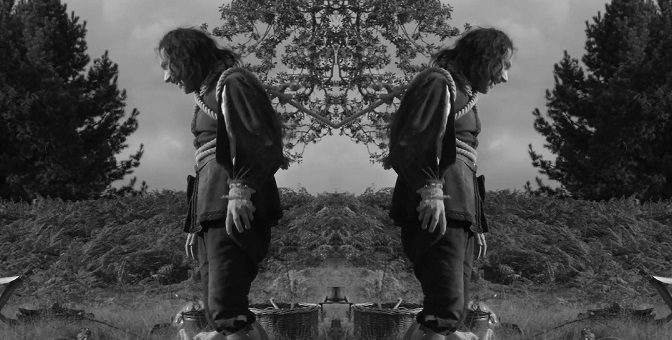
The true definition of a midnight movie, Ben Wheatley’s A Field in England is one of the strangest and most immersive films I’ve ever experienced. The story takes place during the English Civil War, following a group of soldiers who desert a battlefield to find a pub, but end up stumbling into a field of magic mushrooms instead. This is where they meet a powerful alchemist who forces them to search for a mysterious treasure in the field.
The rest of the plot is beyond description, as the film grows increasingly surreal and disorienting as it goes on. The imagery is truly astounding — it’s hard to believe how much Wheatley and his crew were able to get out of a simple dirt field, filmed in black-and-white on a micro-budget. Beyond the psychedelic visuals, Amy Jump’s script is filled with clever dialogue and a surprising amount of humor, with each actor perfectly embodying their respective roles.
A Field in England isn’t an easy film to understand and most viewers probably won’t have the patience or the commitment to appreciate it. But if you simply surrender to Wheatley’s vision and stop trying to figure out what it all means, you’ll find yourself transported out of reality in a way that few movies are capable of.
Black Swan (Darren Aronofsky)

If you’re like me and have absolutely zero interest in ballet, you may be hesitant to watch Darren Aronofsky’s Black Swan. But trust me, you don’t need to be a ballet fan to appreciate the beauty and artistry of this film. It’s really about the pressures of performing and the quest for artistic perfection, a recurring theme in Aronofsky’s filmography that could easily apply to countless other practices beyond ballet.
Unfortunately, Nina (Natalie Portman) is so determined to be flawless on stage that she starts to mentally unravel, with the film growing increasingly dark and surreal to mirror her mental state. Portman deservedly won an Oscar for her career-best performance here, and she’s backed up by strong supporting turns from Mila Kunis, Vincent Cassel, Barbara Hershey, and Winona Ryder. With the help of this cast, Aronofsky achieves exactly what eludes his protagonist: perfection.
The Cabin in the Woods (Drew Goddard)
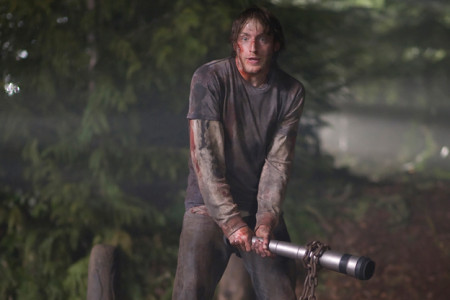
If you think horror movies are stupid and roll your eyes at every cliche, watch The Cabin in the Woods. If you love horror movies and cheer every time Freddy or Jason kills another clueless teenager, definitely watch The Cabin in the Woods. This film is the ultimate example of having your cake and eating it too, working flawlessly both as a deconstruction of the horror genre and as a celebration of it.
The concept of this movie is brilliant and it’s essential that you don’t know anything about the plot going in. It may appear to be a generic, by-the-numbers horror film on the surface, but it turns out to be anything but. The script expertly builds suspense and mystery throughout, keeping you guessing up until the absolutely bonkers climax, which plays out like a wet dream for horror fans.
To be clear, the film isn’t ever truly scary, but it’s not meant to be. It’s actually frequently hilarious and could accurately be labeled as a horror-comedy. But even if it won’t keep you up at night, The Cabin in the Woods deserves pride of place in the horror pantheon as one of the most entertaining and rewarding examples of the genre.
Cloud Atlas (Larry Wachowski, Lana Wachowski & Tom Tykwer)
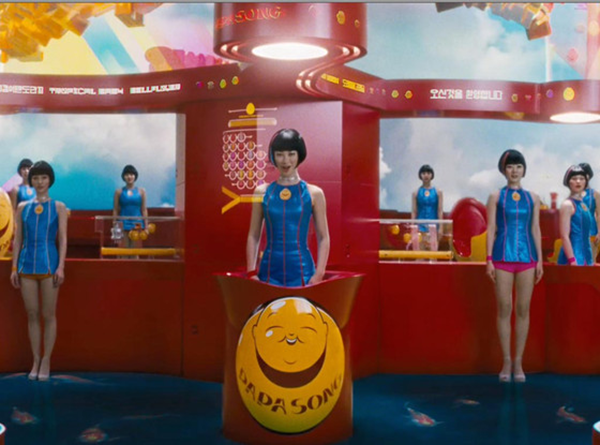
Cloud Atlas never found the audience it deserves, which is really a shame — it’s one of those rare films that works both as action-packed escapism and as philosophical food for thought. I’m a big fan of David Mitchell’s novel and I can’t imagine a better cinematic adaptation, though I’m not surprised that the nearly-three-hour runtime and time-spanning narrative turned away a lot of viewers.
This is a demanding film, with a plot so expansive and detailed that it could take several paragraphs to summarize. All that’s important to know is that the narrative consists of six stories, each in a different time period and following a different protagonist, that end up connecting in a variety of meaningful ways. Tom Hanks, Halle Berry, and the rest of the cast portray multiple roles, re-appearing in each time period as a new character. It’s an odd technique that works beautifully, especially once you understand what the film is trying to communicate.
Tom Hanks claims that Cloud Atlas is the only one of his films that he’s watched more than twice, and it’s easy to understand why. This is a truly epic film, stuffed to the brim with cinematic delights and big ideas. If you’re one of the many who haven’t seen it, I encourage you to give Cloud Atlas a chance and allow yourself to be swept away by its majestic power.
Django Unchained (Quentin Tarantino)

With Django Unchained, Quentin Tarantino proved that the spaghetti western isn’t dead. After incorporating homages to the genre in several of his previous films, Tarantino finally made a full-blown western and the result is one of his finest works. Taking place in the American South a few years before the Civil War, Django Unchained is the story of a freed slave who trains to become a bounty hunter so he can find and rescue his long-lost wife.
As if that plot weren’t awesome enough, Tarantino assembled one of the best casts in recent memory for this film. Jamie Foxx is the definition of cool as Django, while Christoph Waltz steals every scene he’s in as Django’s friend and mentor, Dr. King Schultz. Kerry Washington makes the most of a small role as Django’s wife Broomhilda, effectively communicating the passion of their romance to the audience. Best of all, Leonardo DiCaprio and Samuel L. Jackson are gleefully repugnant as two of the most iconic villains in Tarantino’s filmography.
The script deservedly won an Oscar for its boldly original narrative, unforgettable characters, and endlessly quotable dialogue. This is the kind of movie that when I try to think of a favorite scene or moment, ten more immediately come to mind. While Tarantino was 3-for-3 in making good movies this decade, Django Unchained is unquestionably my favorite of the group.
The Florida Project (Sean Baker)
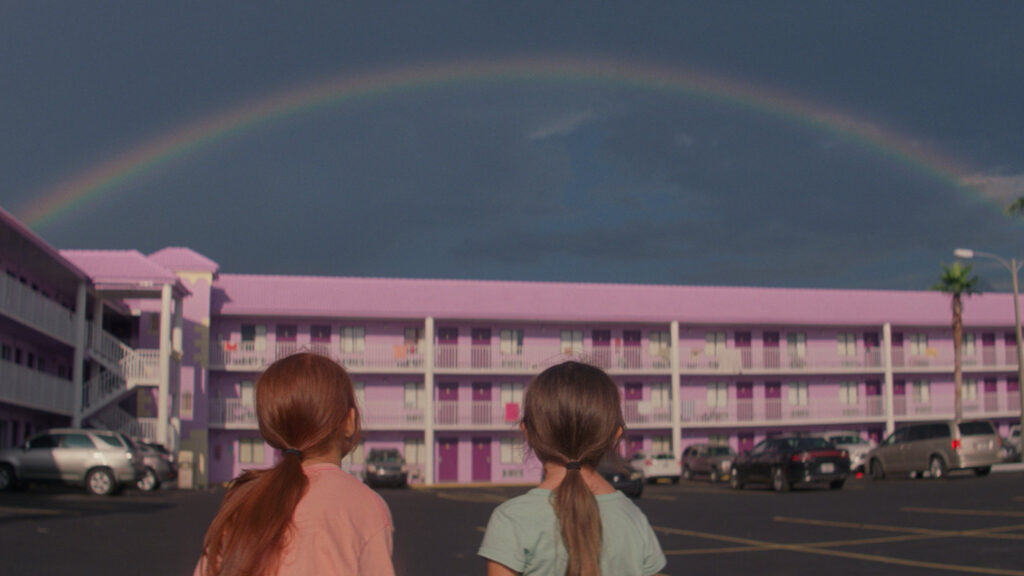
Sean Baker has built his career around telling the stories of people struggling to live on the margins, especially sex workers. But while a lesser filmmaker would simply gawk at the desperate and sometimes reckless behavior of these individuals, or force them into cliched narratives of redemption, Baker is content to let his characters be their authentic selves without judgement. His films provide us with a fragmentary glimpse into dark corners of our society that many Americans are unaware even exist, or are all too eager to ignore.
The Florida Project is Baker’s masterpiece, a gorgeously-shot and wonderfully acted work of pure cinema that encapsulates all of the themes and ideas he’s revisited throughout his career. The story focuses on a 6-year-old girl named Moonee (a revelatory Brooklyn Prince), who lives in a seedy motel near Disney World with her mother Halley (Bria Venaite, in a raw and riveting performance).
Looking out for both of them is the manager of the motel, Bobby (Willem Dafoe). We never learn a lot about his backstory or his life outside of the motel, which makes it all the more remarkable that he still comes across as a three-dimensional, deeply authentic character. This has a lot to do with the invaluable presence of Dafoe, who gives one of the best performances of his career playing wildly against type as the gentlest, kindest person in the film.
Moonee lives right by the so-called “happiest place on Earth,” but Halley is so poor and limited in her options that she can’t afford to take her daughter there. Moonee doesn’t seem to mind, though – for her, every day is an adventure. The scenes of her running wild through the underbelly of Florida with her friends are shot like a fairytale, gloriously colorful and thrillingly alive. But sadly, this is no fairytale, and reality comes crashing into Moonee’s dream world during the film’s heartbreaking and deeply moving climax.
The Handmaiden (Park Chan-Wook)
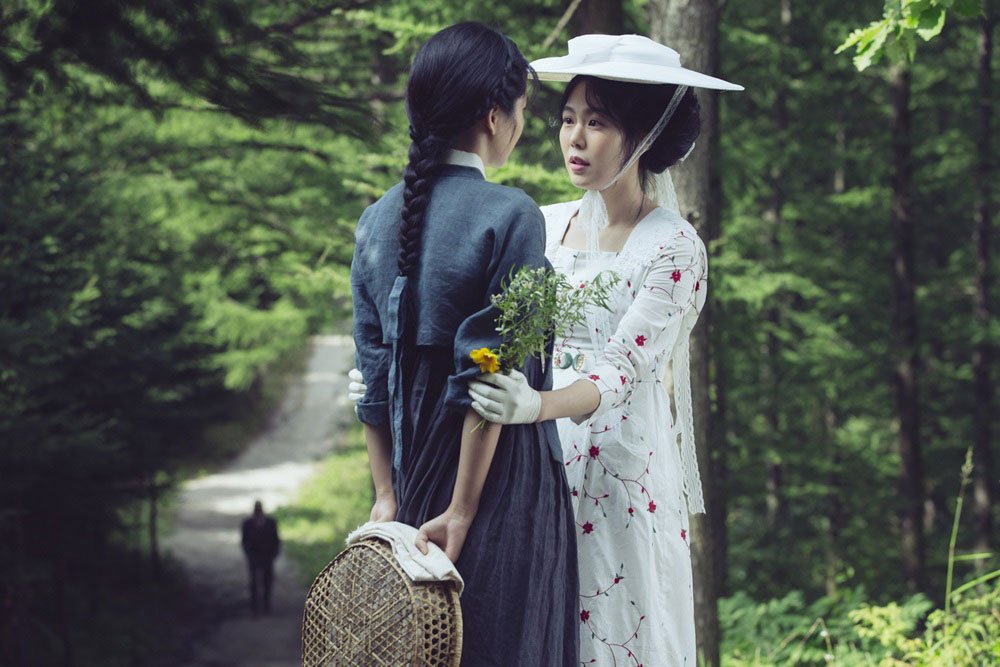
Park Chan-Wook’s The Handmaiden is a twisty and perverse erotic thriller set in Japanese-occupied Korea during the 1930s. The plot focuses on a pickpocket named Sook-Hee who’s enlisted by a con man to become the handmaiden to a wealthy Japanese heiress named Lady Hideko. Sook-Hee’s job is to convince Hideko to marry Count Fujiwara (actually the con-man in disguise) so he can have her committed to an asylum and steal her inheritance.
Naturally, this plan develops quite a few complications. One of the greatest strengths of this film is how it consistently defies expectations, blindsiding the viewer on multiple occasions. The intricate plot leaves nothing unresolved, with even the smallest details producing large payoffs. To top it all off, the movie features one of the most passionate and infectious romances between two women that I’ve witnessed on screen.
The Handmaiden is beautifully shot and lushly designed, evoking its period setting flawlessly. The acting is excellent from top to bottom, with Kim Min-Hee and Kim Tae-Ri standing out the most. All of these elements combine to make The Handmaiden Park Chan Wook’s most satisfying feature since Oldboy.
The House That Jack Built (Lars Von Trier)
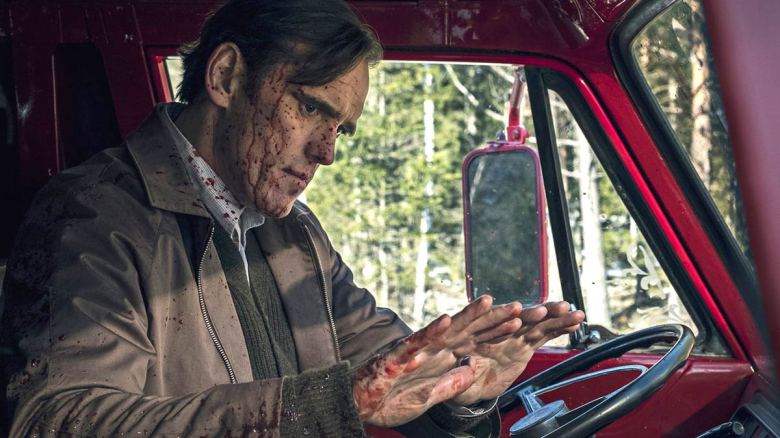
If The House That Jack Built is truly Lars Von Trier’s final movie, I can’t imagine a better conclusion to one of the greatest filmographies of all time. Though it’s hardly his first masterpiece, this film feels like a magnum opus, a career-defining work that finds the legendary provocateur reflecting on his own legacy. The result is a once-in-a-lifetime cinematic experience, the kind of movie that will haunt your thoughts for days after you watch it.
The House That Jack Built is narrated by a serial killer who chooses five random events in his life to tell his story. There’s a lot more to it than that, but I don’t want to spoil any surprises. The narration, framed as a conversation between Jack and an unseen character, is nothing short of brilliant. The running conversation is like a therapy session in which Von Trier is both the doctor and the patient, splitting his psyche and philosophy into two opposing halves.
Matt Dillon is revelatory as Jack in a performance that should have earned him far more attention. His work is in the same league as Christian Bale in American Psycho or Robert De Niro in Taxi Driver. Bruno Ganz also deserves credit for an excellent vocal performance as Jack’s mostly-unseen speaking partner.
To be clear, this movie isn’t for everyone — it’s dark, twisted, and unapologetically upsetting at times. Viewers who are squeamish about violence will especially want to avoid this one, as it contains some of the most graphic killings I’ve ever seen on screen. But it’s also quite funny, the kind of movie that makes you laugh and then instantly feel bad about it. With The House That Jack Built, Lars Von Trier has added an exclamation point to his filmography that’s impossible to shake.
Inception (Christopher Nolan)
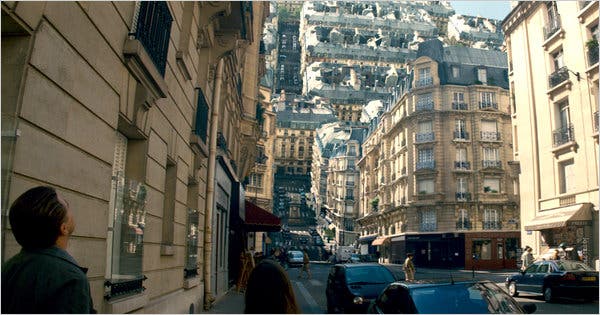
Nearly ten years after sparking endless debates among filmgoers, Inception remains a jaw-dropping experience that leaves you feeling both dazed and invigorated. Essentially a heist film set within the mind’s subconscious, the plot focuses on a mission to invade a man’s dreams and plant an idea in his mind that will influence him to make a crucial decision.
Did you catch all that? Don’t worry if you can’t keep it straight because part of the fun of Inception is letting yourself get lost in its many, many layers. It’s hard to be sure if you’re in a dream or reality through most of the film, an experience that mirrors what protagonist Dom Cobb (a typically excellent Leonardo DiCaprio) is feeling. This makes the film both frustrating and endlessly rewatchable, as there are always more details to absorb.
The effects are astounding (that folding city!), the storytelling is brilliant, and the acting is on point. It all culminates in a stunner of an ending that will keep audiences talking forever.
The Irishman (Martin Scorcese)
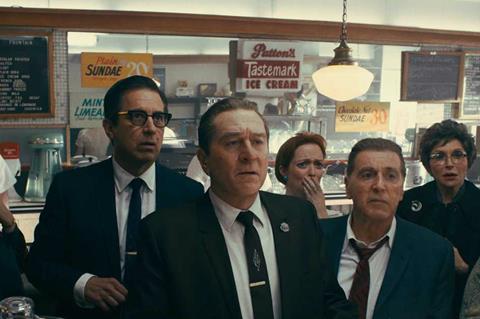
Shame on the Academy for shutting this film out at the Oscars. The Irishman is a late-career masterpiece from Martin Scorcese that can stand proudly alongside some of his greatest works. Robert De Niro, Al Pacino, and Joe Pesci are all at their best in this film, headlining one of the best casts ever assembled (Harvey Keitel also appears briefly, in a wonderful cameo).
Yes, it’s three and a half hours long — but I wouldn’t change a frame. The patient, sprawling storytelling allows Scorcese and writer Steven Zaillian to achieve a level of detail that few films could match, examining the connection between organized crime and politics through a large chunk of American history. The length also pays off with a haunting, emotionally devastating ending that wouldn’t have the same impact if the film was condensed. It may be on Netflix, but make no mistake — The Irishman is a cinematic landmark.
